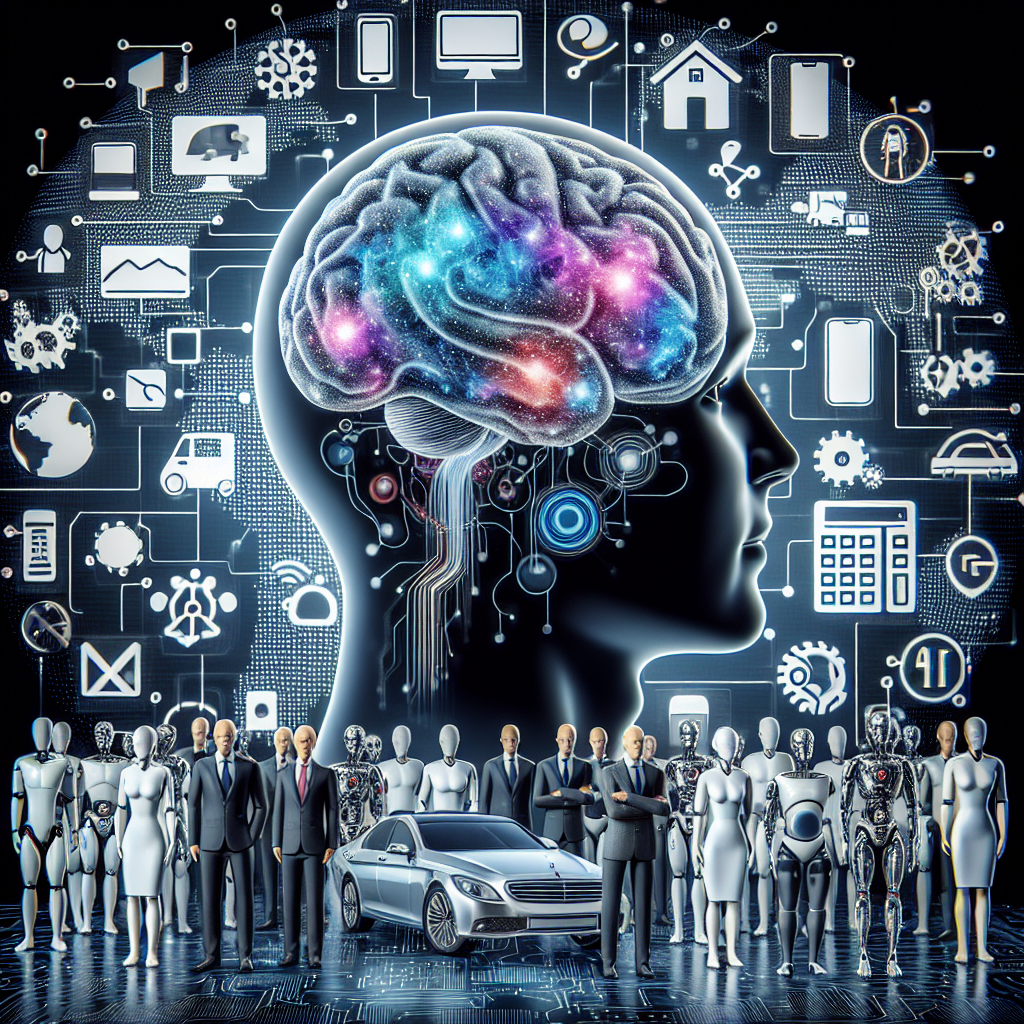Artificial General Intelligence (AGI) has long been the holy grail of artificial intelligence research. Unlike narrow AI, which is designed for specific tasks, AGI aims to replicate human-like intelligence across a wide range of domains. While we are still far from achieving true AGI, there have been significant advancements in the field in recent years. In this article, we will explore some real-world applications of AGI and discuss the potential impacts of this technology on society.
Real-World Applications of AGI
1. Healthcare: AGI has the potential to revolutionize healthcare by improving diagnostics, treatment planning, and patient care. For example, AGI-powered medical imaging systems can analyze images and identify abnormalities with greater accuracy than human radiologists. This can lead to earlier detection of diseases and more personalized treatment plans for patients.
2. Finance: AGI is also being used in the financial sector to analyze market trends, predict stock prices, and optimize investment portfolios. By processing vast amounts of data and identifying patterns that humans may overlook, AGI can help investors make more informed decisions and mitigate risks.
3. Autonomous Vehicles: AGI is a key technology in the development of autonomous vehicles. By combining sensors, cameras, and AI algorithms, self-driving cars can navigate complex environments, make split-second decisions, and adapt to changing road conditions. AGI is crucial for ensuring the safety and reliability of autonomous vehicles.
4. Customer Service: AGI-powered chatbots and virtual assistants are increasingly being used to enhance customer service experiences. These AI systems can understand natural language, provide personalized recommendations, and resolve customer queries in a timely manner. AGI can improve customer satisfaction and streamline support operations for businesses.
5. Education: AGI has the potential to transform education by providing personalized learning experiences for students. Intelligent tutoring systems powered by AGI can adapt to individual learning styles, track progress, and provide real-time feedback to help students master difficult concepts. This can lead to improved academic outcomes and increased student engagement.
Impacts of AGI on Society
While AGI has the potential to bring about many benefits, it also raises concerns about its impact on society. Here are some key considerations:
1. Job Displacement: One of the biggest concerns surrounding AGI is the potential for job displacement. As AI systems become more capable of performing tasks traditionally done by humans, there is a risk of widespread unemployment in certain industries. It will be important for policymakers to address this issue by investing in retraining programs and creating new job opportunities in emerging fields.
2. Ethical Dilemmas: AGI raises ethical dilemmas related to privacy, bias, and accountability. For example, AI systems may inadvertently encode biases present in the data they are trained on, leading to discriminatory outcomes. It will be crucial to establish guidelines and regulations to ensure that AGI is developed and deployed responsibly.
3. Security Risks: AGI also poses security risks, as malicious actors could potentially use AI systems to carry out cyberattacks, manipulate information, or undermine democratic processes. Robust cybersecurity measures will be essential to safeguard against these threats and protect sensitive data.
4. Socioeconomic Inequality: AGI has the potential to exacerbate socioeconomic inequality by concentrating wealth and power in the hands of a few corporations or individuals. It will be important to consider how AGI can be leveraged to benefit society as a whole and address disparities in access to technology and resources.
FAQs
Q: How close are we to achieving AGI?
A: While significant progress has been made in AI research, true AGI remains a distant goal. Researchers continue to work on developing AI systems that can generalize across different tasks and domains, but there are many technical challenges that still need to be overcome.
Q: What are some ethical considerations related to AGI?
A: Ethical considerations related to AGI include issues of privacy, bias, accountability, and transparency. It will be important for developers and policymakers to address these concerns to ensure that AGI is developed and used in a responsible manner.
Q: How will AGI impact the job market?
A: AGI has the potential to automate many tasks currently performed by humans, leading to job displacement in certain industries. It will be important for society to adapt to these changes by investing in education and training programs to prepare workers for new job opportunities.
In conclusion, AGI has the potential to transform various industries and improve our daily lives in many ways. However, it is crucial to consider the potential impacts of this technology on society and address ethical, security, and socioeconomic concerns. By responsibly developing and deploying AGI, we can harness its benefits while mitigating its risks for a more equitable and sustainable future.

